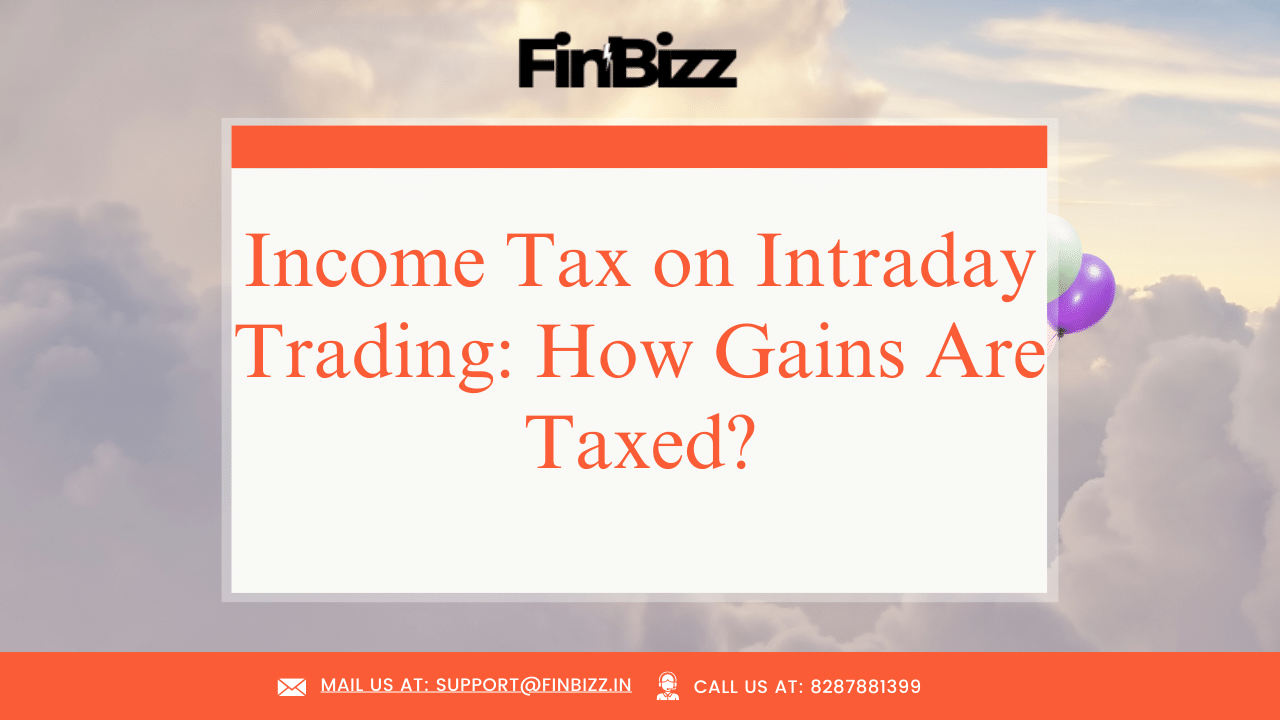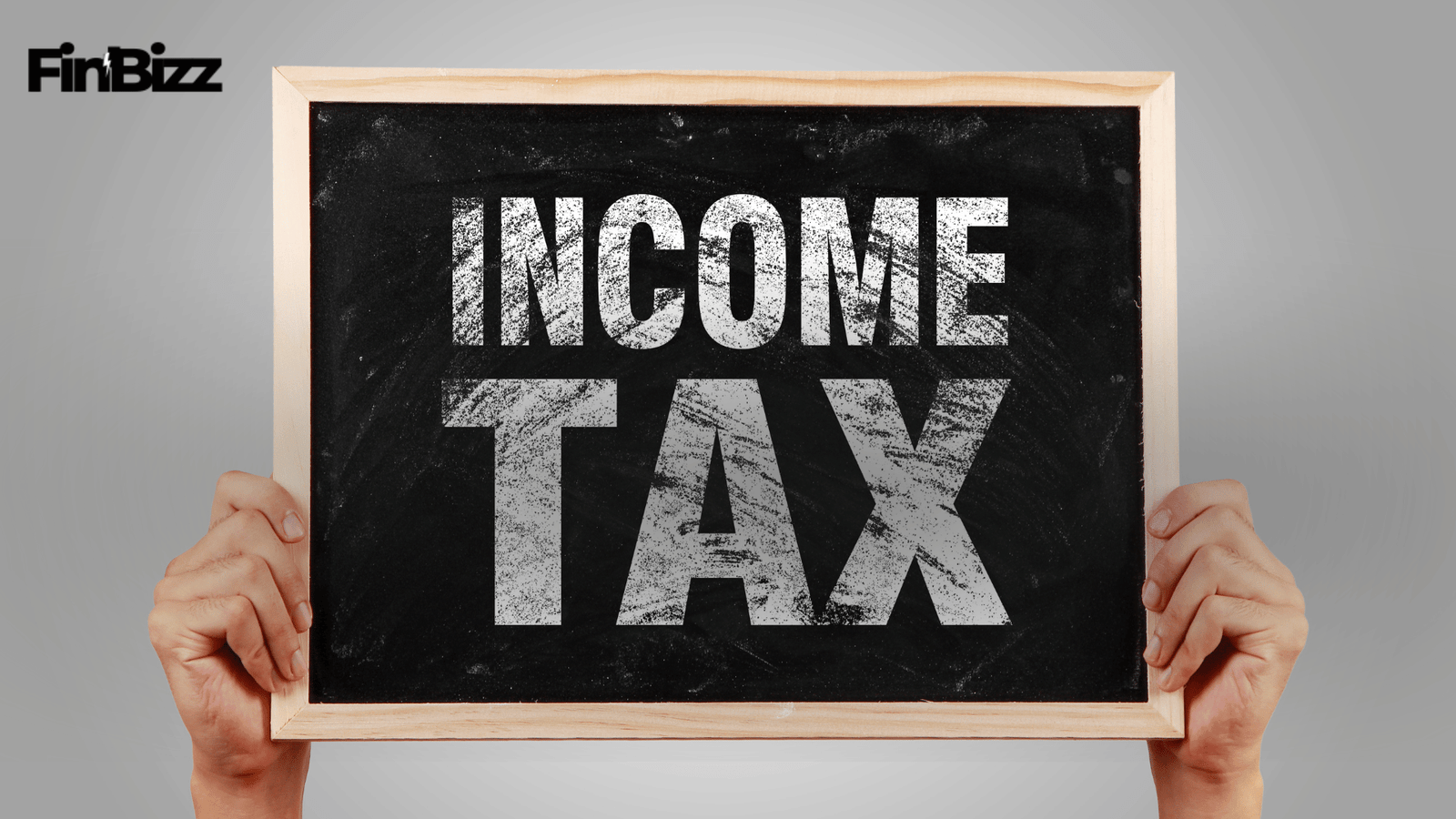Intraday trading, also known as day trading, involves buying and selling stocks within the same trading day. While it offers the potential for quick profits, it also comes with unique tax implications. Understanding how gains from intraday trading are taxed in India is crucial for traders to ensure compliance and optimize their tax liability. In this comprehensive guide by FinBizz, we will delve into the intricacies of income tax on intraday trading and how these gains are taxed.
Introduction
Intraday trading has become increasingly popular among traders looking to capitalize on market fluctuations within a single trading session. However, the tax treatment of gains from intraday trading differs from other forms of investment. FinBizz is here to help you navigate the tax implications and ensure that you are fully compliant with Indian tax laws.
What is Intraday Trading?
Intraday trading refers to the practice of buying and selling stocks on the same day, with the aim of profiting from short-term price movements. Unlike long-term investments, intraday trades are not held overnight, and all positions are squared off before the market closes.
Tax Treatment of Intraday Trading
Gains from intraday trading are classified as speculative business income under the Indian Income Tax Act. This classification is due to the high-risk nature of intraday trading, where transactions are completed within a single day without actual delivery of shares.
Key Points:
- Speculative Business Income: Intraday trading gains are considered speculative business income, not capital gains.
- Taxability: Taxed under the heading “Income from Business or Profession.”
Calculating Intraday Trading Income
To calculate intraday trading income, follow these steps:
- Determine Gross Profit/Loss: Calculate the difference between the selling price and the purchase price of stocks traded intraday.
- Deduct Expenses: Subtract any expenses directly related to trading, such as brokerage fees, transaction charges, and other associated costs.
- Net Profit/Loss: The result is your net intraday trading income, which is taxable as speculative business income.
Example:
- Total Selling Price: ₹5,00,000
- Total Purchase Price: ₹4,90,000
- Gross Profit: ₹5,00,000 – ₹4,90,000 = ₹10,000
- Expenses (Brokerage, etc.): ₹1,000
- Net Profit: ₹10,000 – ₹1,000 = ₹9,000
Tax Rates Applicable to Intraday Trading
Intraday trading income is added to your total income and taxed according to the applicable income tax slab rates for individuals. The tax rates are progressive, meaning they increase with higher income levels.
Tax Slabs for FY 2023–24:
- Income up to ₹2,50,000: Nil
- Income from ₹2,50,001 to ₹5,00,000: 5%
- Income from ₹5,00,001 to ₹10,00,000: 20%
- Income above ₹10,00,000: 30%
Filing Intraday Trading Income in Tax Returns
When filing your income tax return (ITR), you need to report intraday trading income under the head “Income from Business or Profession.” Here are the steps:
- Choose the Correct ITR Form: Typically, ITR-3 or ITR-4 (for presumptive taxation) is used for reporting business income.
- Maintain Detailed Records: Keep records of all intraday transactions, including contract notes, brokerage statements, and expense receipts.
- Report Income and Expenses: Report the net profit/loss from intraday trading along with other business income.
- Pay Advance Tax: If your total tax liability exceeds ₹10,000 in a financial year, you are required to pay advance tax in installments.
Deductions and Expenses
You can deduct certain expenses incurred in the course of intraday trading from your taxable income:
- Brokerage Fees: Deduct brokerage fees paid for executing trades.
- Transaction Charges: Deduct charges imposed by the stock exchange.
- Other Expenses: Deduct other expenses directly related to trading, such as internet costs, software fees, and professional fees for financial advice.
Important:
- Non-Speculative Business Expenses: These cannot be deducted against speculative business income.
Example Calculations
Let’s illustrate with an example:
Example 1: Intraday Trading Profit
- Total Selling Price: ₹7,00,000
- Total Purchase Price: ₹6,80,000
- Gross Profit: ₹7,00,000 – ₹6,80,000 = ₹20,000
- Expenses (Brokerage, etc.): ₹2,000
- Net Profit: ₹20,000 – ₹2,000 = ₹18,000
Assuming the trader falls in the 20% tax slab, the tax on the intraday trading income would be:
- Tax: ₹18,000 x 20% = ₹3,600
Example 2: Intraday Trading Loss
- Total Selling Price: ₹3,00,000
- Total Purchase Price: ₹3,20,000
- Gross Loss: ₹3,00,000 – ₹3,20,000 = -₹20,000
- Expenses (Brokerage, etc.): ₹1,000
- Net Loss: -₹20,000 – ₹1,000 = -₹21,000
The net loss can be carried forward for up to four years and set off against future speculative business income.
Record Keeping and Compliance
Maintaining accurate records is essential for compliance and smooth filing of tax returns:
- Keep Contract Notes: Retain contract notes from your broker for each trade.
- Brokerage Statements: Maintain monthly and annual brokerage statements.
- Expense Receipts: Keep receipts for all expenses claimed as deductions.
- Audit Requirements: If your total turnover from intraday trading exceeds ₹1 crore, you may need to get your accounts audited.
Conclusion
Understanding the tax implications of intraday trading is crucial for traders to ensure compliance with Indian tax laws and to optimize their tax liability. Intraday trading income is treated as speculative business income and taxed according to individual income tax slab rates. By maintaining accurate records, reporting income correctly, and utilizing allowable deductions, you can effectively manage your tax obligations. FinBizz is here to provide you with expert guidance and support in navigating the complexities of intraday trading taxes and ensuring your financial success. For personalized advice and comprehensive financial planning. reach out to FinBizz, your trusted partner in financial management.




